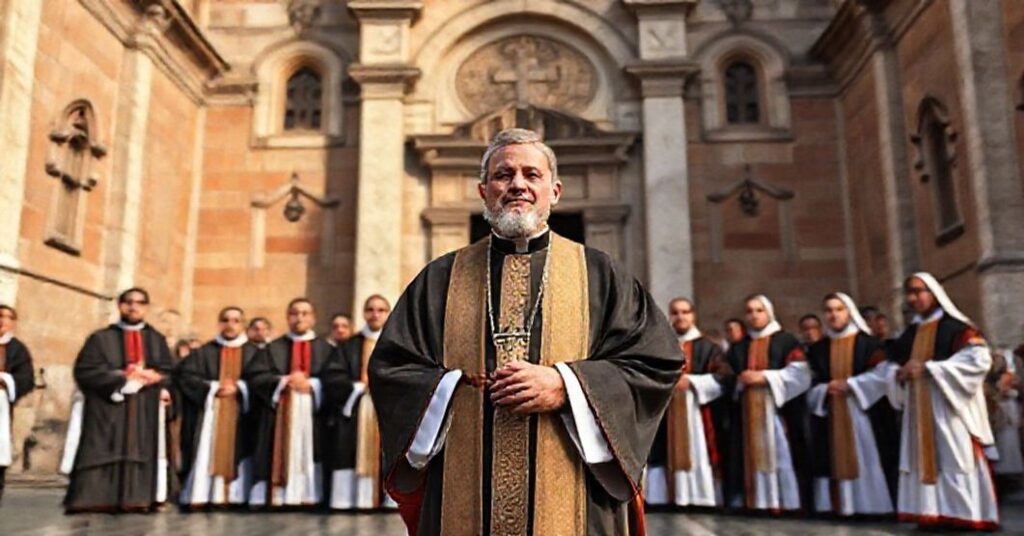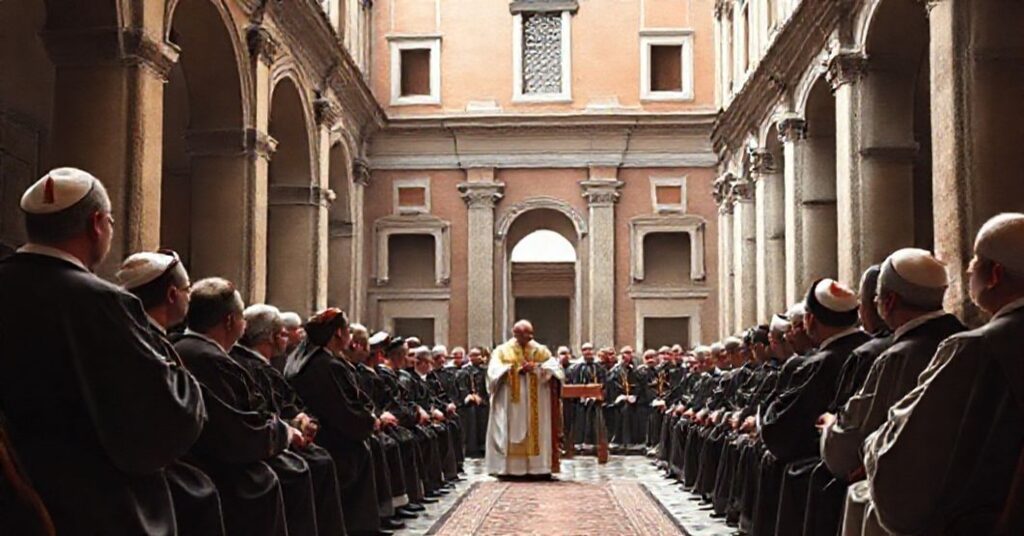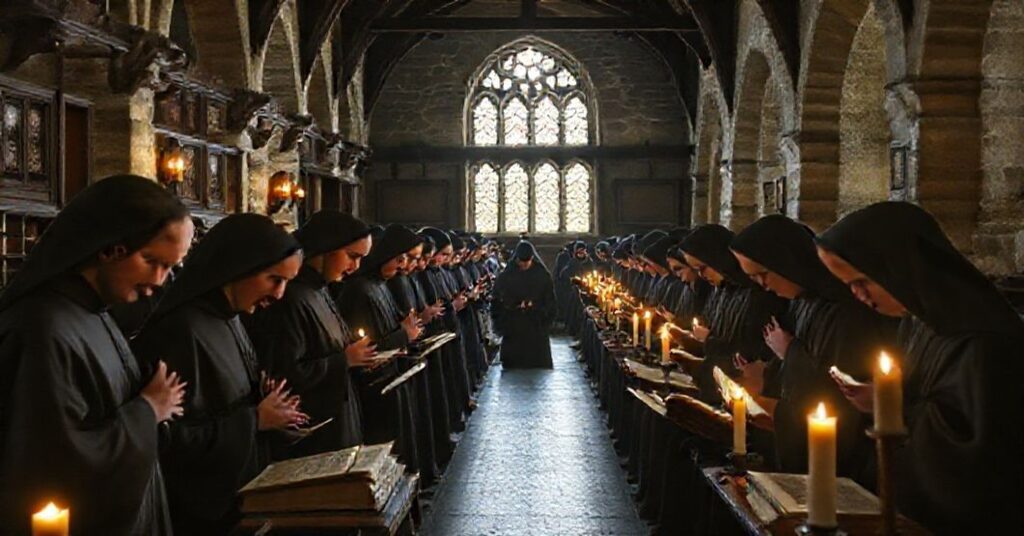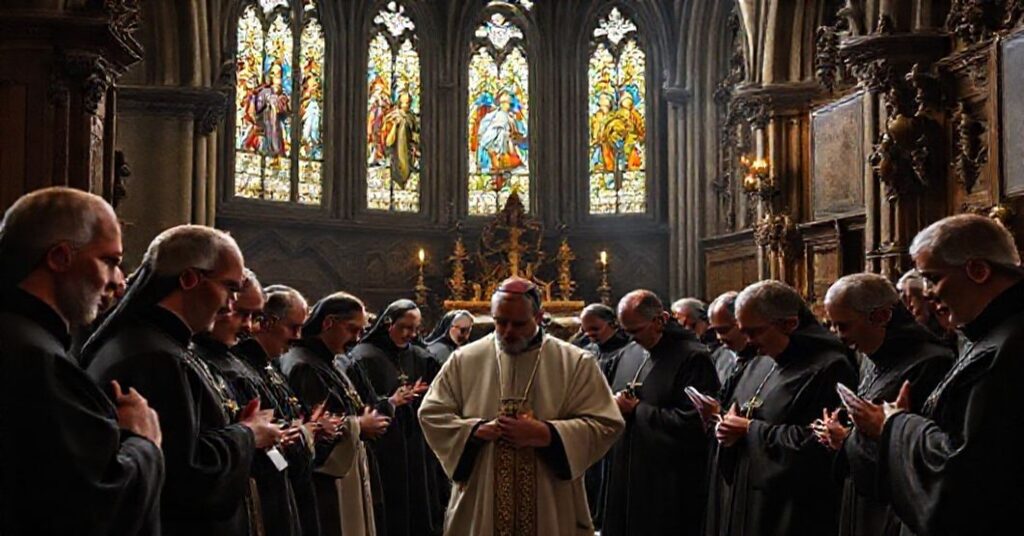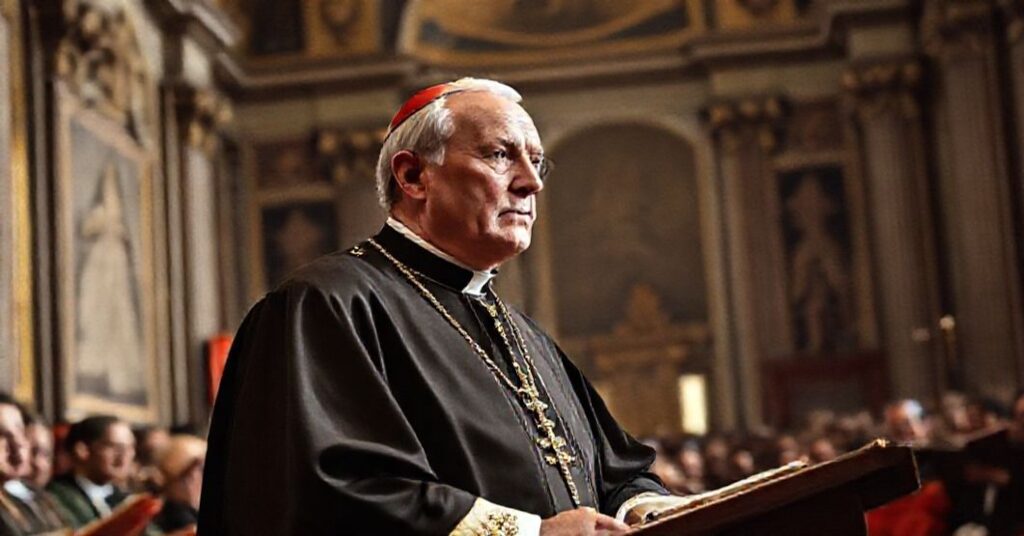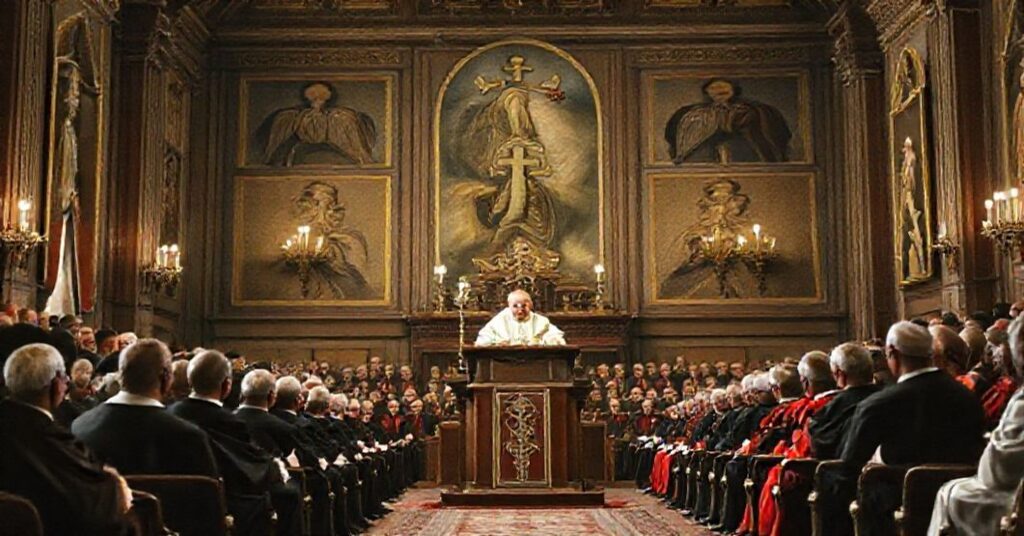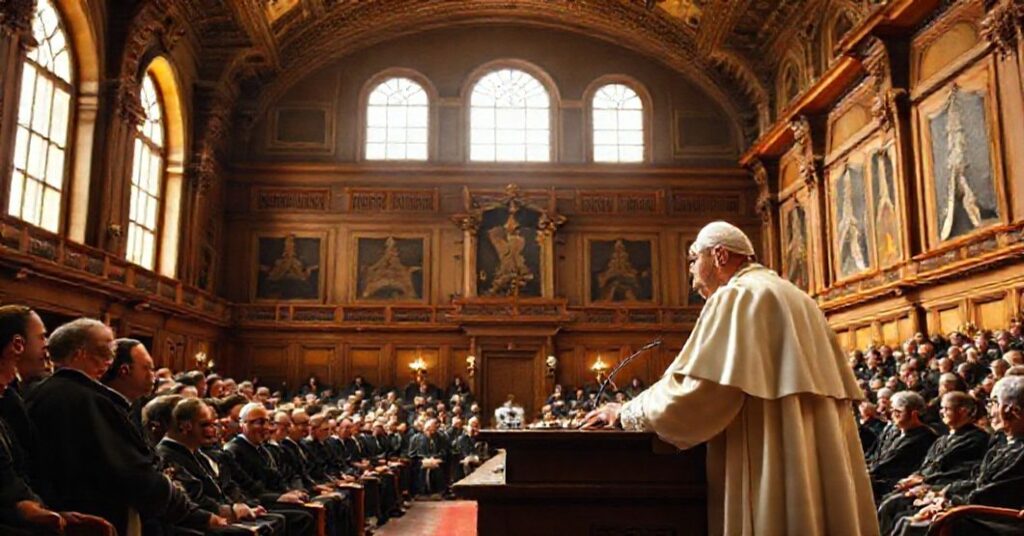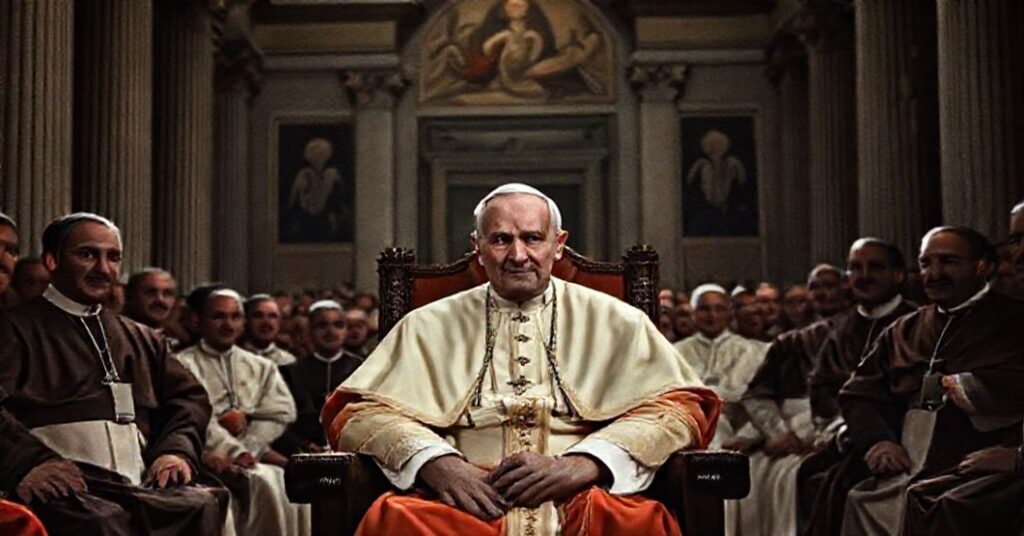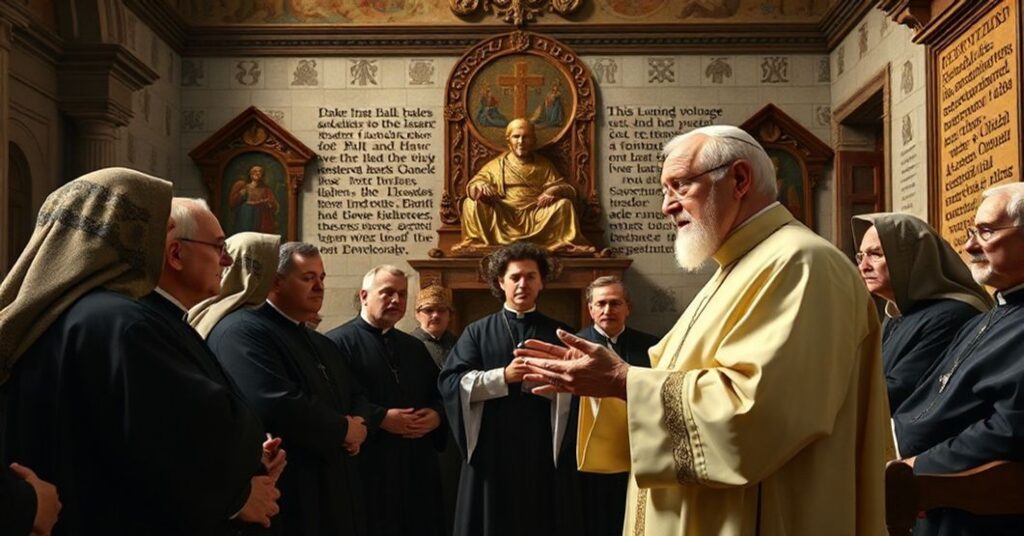Allocutio Ioannis XXIII (1959.12.14)
The text is a Latin allocution of the usurper John XXIII at a secret consistory on 14 December 1959. It self-congratulates the nascent conciliar regime for pilgrimages, political visits, cultic events, and announces new members of the so‑called College of Cardinals, while preparing the ground for the Roman diocesan synod and the future “ecumenical council,” presenting these as signs of the Church’s “youthful vigor” and global openness. In reality, this speech is an early programmatic manifesto of the neo‑church: a sentimental, naturalistic, diplomatically modernist script that replaces the Kingship of Christ with humanist pacifism and lays structural foundations for the impending revolution against the integral Catholic faith.


